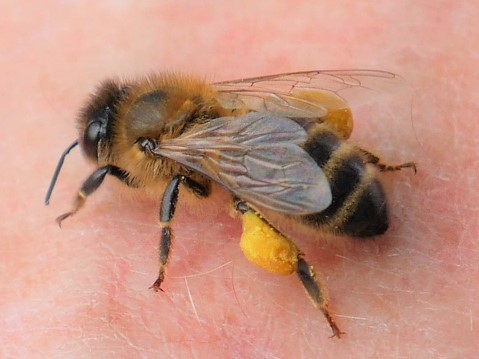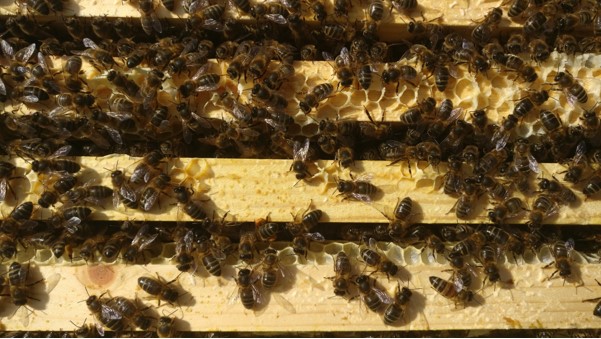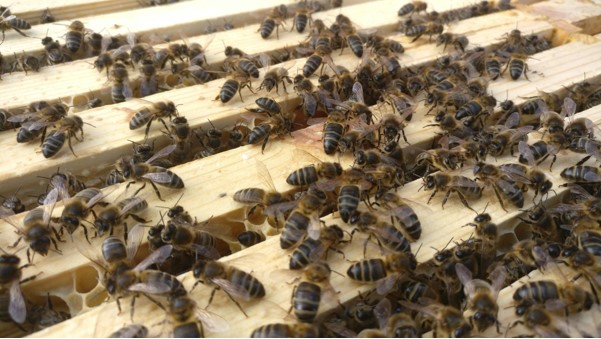We wish to continue and extend our search for good examples of native honey bees from around Scotland this spring. If you, or other local beekeepers you know, have bees that you think are native dark stock please get in touch. This is a project to identify native colonies and ultimately to propagate and help the recovery of dark native honey bees in Scotland. If your stock is selected, and if you are willing to cooperate by letting us propagate your stock, we will fund and share with you DNA testing of the bees.
What are we looking for?
Colonies where the bees have a uniform dark body colour, without significant banding and no yellow or orange colouring of abdominal segments. Do not include colonies that are derived from bees outside Scotland.
What you should do.
As soon as you are able to do a spring examination, take three high resolution photos across the tops of the frames at different angles. Ideally this would be after colony manipulation when there are many bees milling over the top bars. Take photos in good light with a device capable of taking high resolution photos.
Send to me at the following email address:- durkacz@hotmail.co.uk.
Your submitted photos should look something like this with 3 top bars and bees in focus:
Preferably images should have sufficient detail to be able to see abdominal hairs when magnified.

Sending images.
There is a limit to file sizes when sending images as email attachments (10 MB). If you exceed this only one or two images may be sent. Large files can easily be sent using We Transfer which is free for up to 2 GB. If you find this difficult just send a single image attached to each email.
Information we will need.
I will need to record your name, contact tel. number (optional), email address and only an approximate location of the apiary. (e.g. near Dunfermline).
Please record your submitted photos for yourself in any way that allows you to remember clearly where the colony is and the position in the apiary as samples of bees may be requested later. Please send me your own identifying hive code.
What happens next?
We will carefully assess the photos received on a number of visual traits and if they look good will contact you to ask for a sample of bees for further examination.
By entering your bees in this survey we will assume that there is a willingness to share in the ethos of the Scottish Native Honey Bee Society which is ultimately to propagate and make available good native bees for Scottish beekeepers.
Your privacy is our main concern and information will be shared only within the immediate Conservation Team and I will be your point of contact. Results of assessments will be sent to you and hopefully this will be done quickly as the aim is to keep the process simple. We intend offering and sharing with you expert DNA analysis when there are colonies that look like excellent Scottish native Apis mellifera mellifera. Although we are likely to remain under Covid restrictions for some time, beekeepers are able to visit their apiaries and manage their bees whilst following Government guidelines.
Best wishes for the coming beekeeping season,
John
J E Durkacz (SNHBS Conservation Group)


